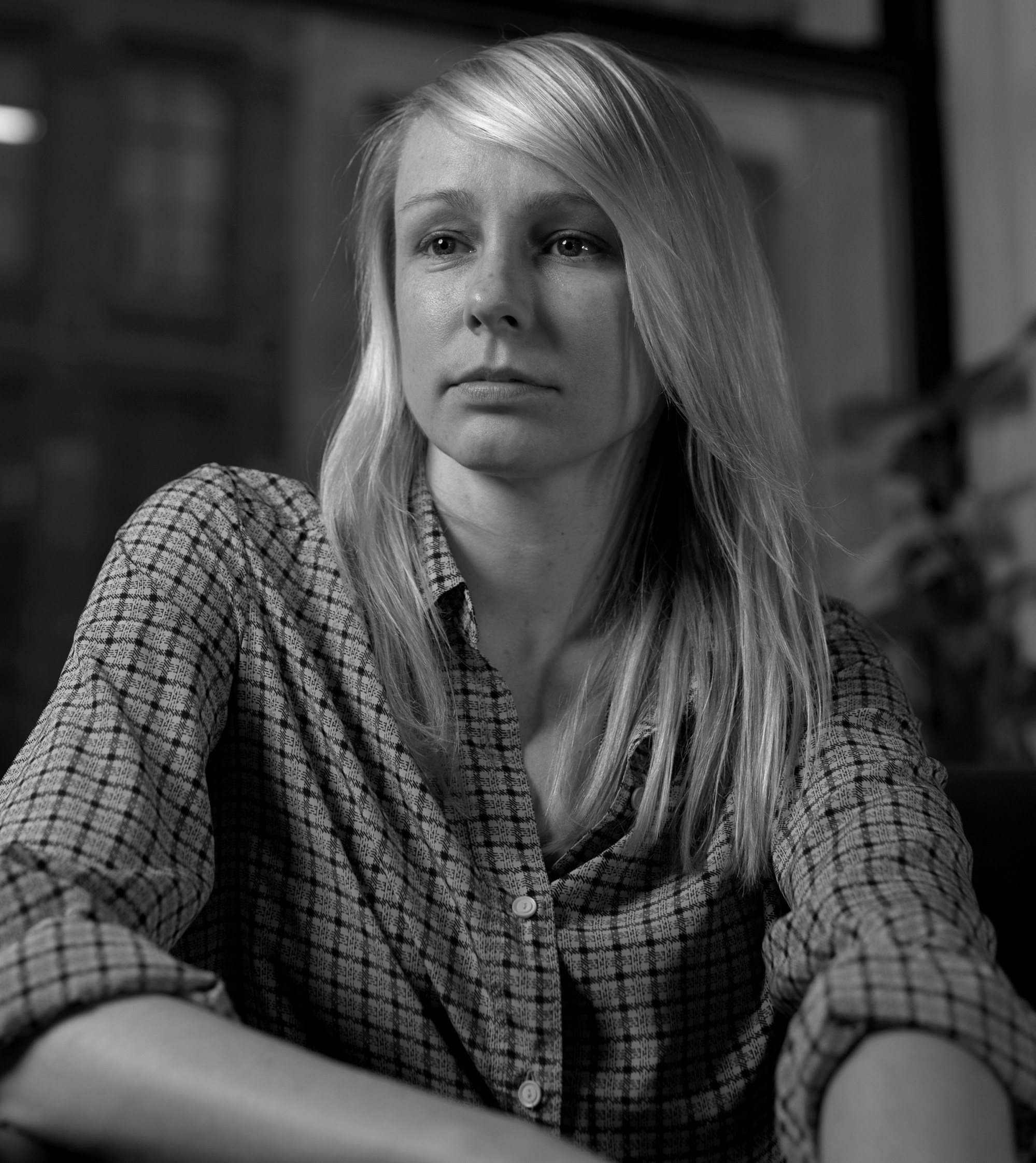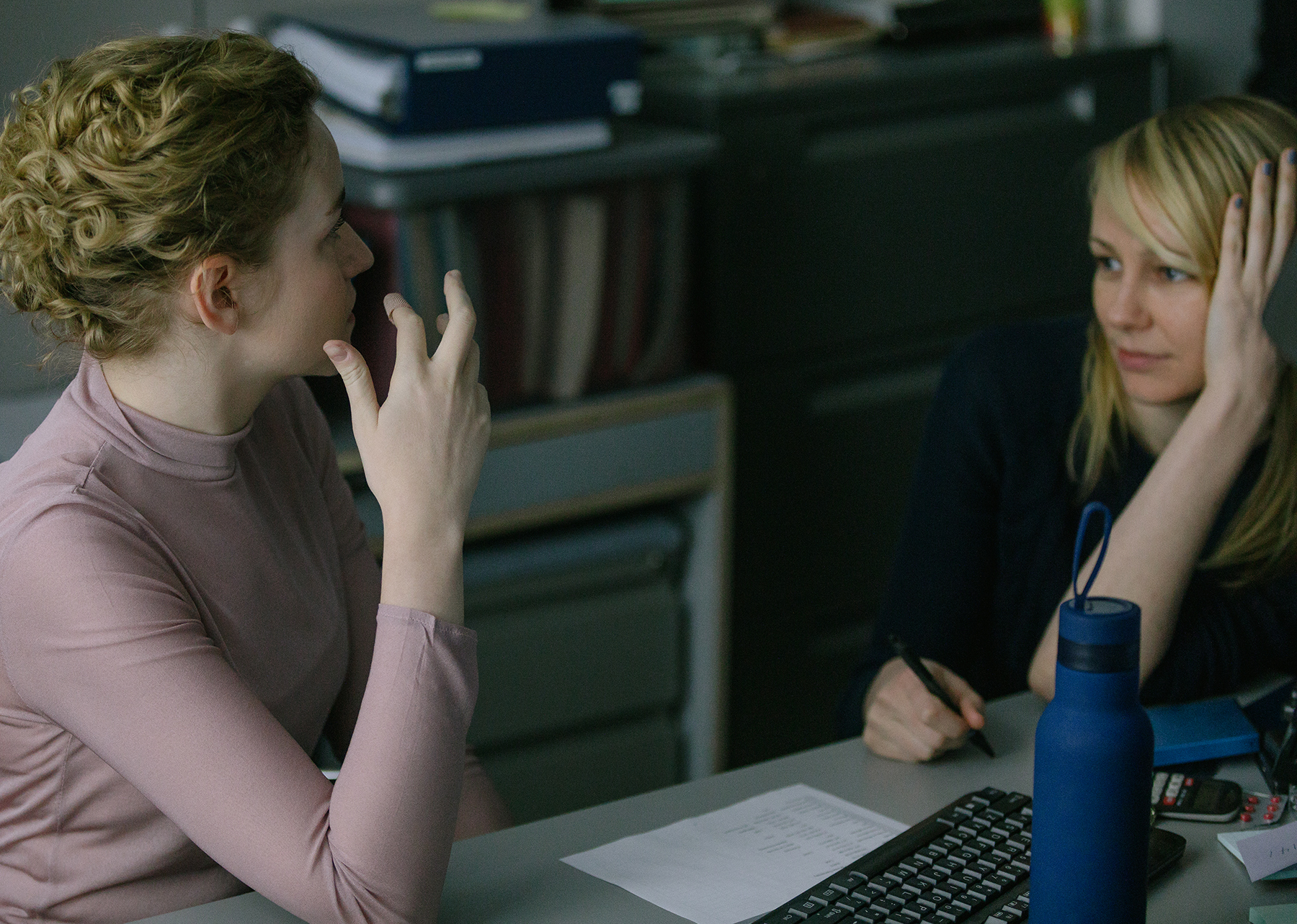
- Interviews
Kitty Green Showcases Structural Misogyny in “The Assistant”
“I grew up around a lot of women who have followed their dreams,” says Kitty Green, a previous AACTA winner for Best Feature-Length Documentary and now director and writer of The Assistant, starring Julia Garner and Matthew Macfadyen, which covers a day in the life of a young assistant working for an exploitive and predatory executive.
Originally conceived as a project on consent and institutional power, the film shifted focus when the Harvey Weinstein story broke. As the filmmaker spoke to assistants and executives from studios, companies, and agencies including at the Weinstein Company, the research led to The Assistant screenplay. Despite capturing the Zeitgeist, studios weren’t jumping at funding, recalls Green, her voice tinged with irony and exasperation. “The female executives would really want to take this on, and the men would often say no. It would get pretty far up the chain, and then somebody would say no and it would be rejected.” She won’t comment if executives fail to identify with stories that tap into women’s concerns, rather she shares the advice she gives her students when teaching filmmaking. “Develop your pitch. In a place like Hollywood, you have to cut through the noise. In the American film industry, you have to find a way to pitch it, that sounds riveting and exciting. A lot of people label The Assistant a thriller. I don’t see it as such. But whatever. If you can get their eyeballs on it, I will take a label.”
What Green rejects are the labels of gender proficiency. “Growing up with parents in the arts, there was never a consideration that as a woman, I shouldn’t be doing what I was doing. It was only when I undertook to make a documentary, Ukraine Is Not a Brothel, that I realized how patriarchal the world is; how very messed up the system is.” The Melbourne native learned in subtle ways that unconscious bias stacked the playing field against women. “I encountered that time and time again.” She notes, advising: “you just have to do it,” and not get bogged down in social expectations. The gender skew “starts at film school; there were fewer women. We each had to make a film. A man quickly gets crew. Everybody wants to work on men’s films. You get the feeling really; they don’t trust women’s films. It’s very clear from the start that you have to work much harder to prove that you are good at what you do.”
The media doesn’t help in the manner in which they frame women directors’ work. “Three years ago, at Sundance, a reporter asked me which of the males present gave me my ideas? There was the assumption that I was not creatively in control, and that men are. I get that a lot. It’s very disconcerting. It made me question if I wanted to be in this industry if my work wouldn’t be valued in the same way a man’s.” Fortunately, her voice has been recognized and results in unique viewpoints that in The Assistant can be embraced by both men and women.
The effects of toxic power structures are revealed, which allow exploitation of ambitious people, while at times eliciting the complicity of bystanders and the exploited themselves, in a complicated web of interdependencies. “There’s been a lot of coverage in the media about the climate of silence. When people didn’t know who to trust with their concerns about behavior, and if their concerns would be rejected by others or if (they themselves would be) dismissed.”
Green uses that cultural silence in the film: “We’re very careful not to pack it with music or montage or make it easy for anyone. We wanted people to be put squarely in the shoes off our protagonist, a woman with very little agency, very little power. The soundscape became very important. Copiers, fluorescent lights, cityscape. That was something we spent a lot of time on.
She continues, “The Assistant is designed to take place prior to the #metoo movement before we had the language, hashtags, and spaces in which to talk about this.”
Set in the not too distant past it shows the behavior which resulted in the collective outcry about exploitation and sexual compromises in the industry. “I think analyzing or interrogating a system or a structure against women is timeless. Hopefully, things will change, but for now, those behaviors still exist. It is still a problem. There is still a culture of misogyny, and a toxic system that we’re all a part of that we need to break apart and rebuild.” One solution is to see more women in the film industry and more women in positions of power across the board.”

Actor Julia Garner (left) and director/writer/producer Kitty Green (right) on the set of THE ASSISTANT, a Bleecker Street release.
Ty Johnson/Bleeker Street

